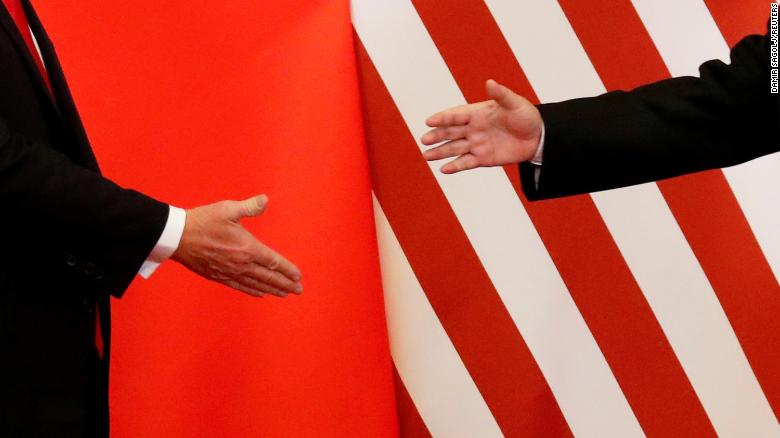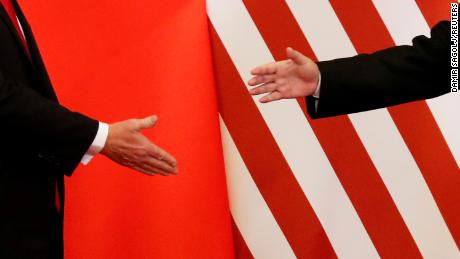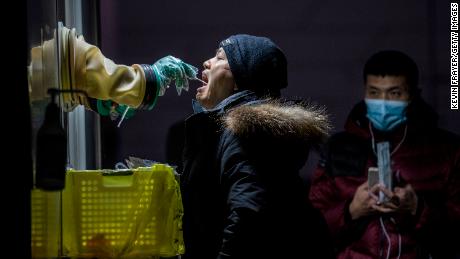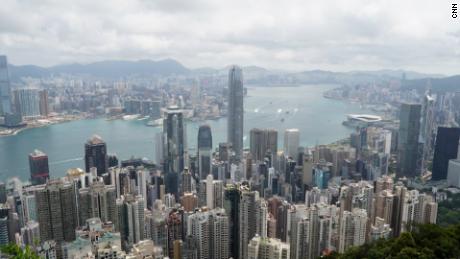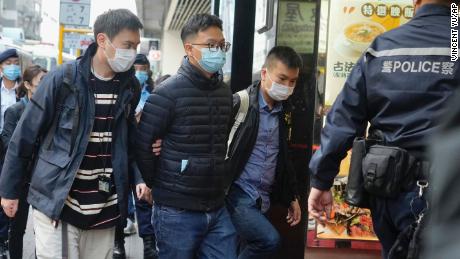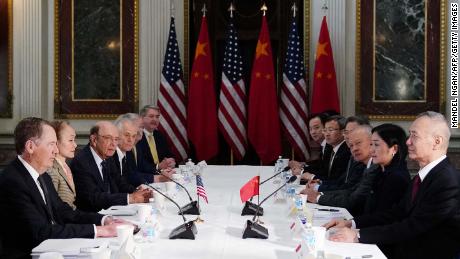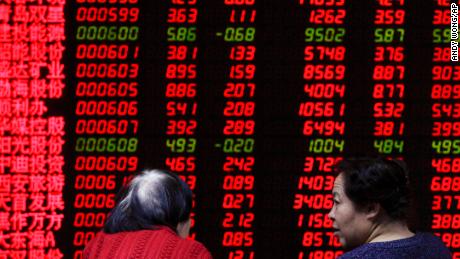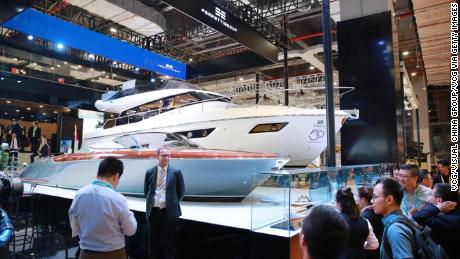Washington (CNN Business)The Trump administration has officially shelved its threat to sharply increase tariffs on $200 billion of Chinese exports as the world's two largest economies inch closer to a deal.
The Office of the US Trade Representative said in an emailed statement Thursday that it will file documents this week under the direction of President Donald Trump to "suspend the scheduled tariff increase until further notice."
The tariffs on the huge swath of Chinese goods had been set to rise from 10% to 25% on Saturday, a deadline set by Trump in early December after he and Chinese leader Xi Jinping agreed to a truce in the trade war between the two countries that has shaken companies and financial markets around the world.
Trump said Sunday that he would delay the tariff increase but didn't give a time frame. The absence of a new deadline in the US Trade Representative's filing suggests negotiators are hopeful of reaching a deal soon.
Trump's top trade envoy, Robert Lighthizer, indicated earlier Wednesday at a congressional hearing that the US government planned to suspend the tariff hike scheduled to start this weekend.
The move comes after Trump declared Monday that he would hold a "signing summit" with Xi for the deal Lighthizer is trying to negotiate.
"We're going to have another summit, we're going to have a signing summit, which is even better, so hopefully we can get that completed, but we're getting very, very close," he said.
'Don't go for the soybean solution'
At the hearing Wednesday however, Lighthizer stuck a more cautious tone about the negotiations with Beijing.
Despite the recent steps toward resolving the trade dispute that has rattled Wall Street, weighed on the Chinese economy and hurt US businesses, Lighthizer stressed that the talks between the two countries were far from over with a lot of work remaining.
"We are making real progress," he said. "If we can complete this effort ŌĆö and again I say 'if' ŌĆö and can reach a satisfactory solution to the all-important issue of enforceability as well as some other concerns."
Lighthizer said it's still unclear whether the Chinese will meet US demands ŌĆö but that the issues were "too serious" to simply accept Chinese promises to purchase more US agricultural products and call it a win.
"Don't go for the soybean solution. This is our one chance," he said.
Holding China accountable
Lighthizer detailed how the administration planned to enforce any deal struck with China, which has been a major stumbling block for talks. The US trade envoy has repeatedly said the United States would not accept any deal without a means to hold the Chinese accountable for their pledges.
He said violations of the binding agreement would be discussed over consultations on a monthly basis with staffers, quarterly by vice ministers and twice-a-year by the ministers of the two countries. Lighthizer did not rule out unilateral action in the form of tariffs, if the issue could not be resolved.
"Without that sort of thing then to me we don't have real commitments," said Lighthizer.
He also said any imminent deal would be one step forward in a much longer process to fundamentally change Chinese unfair trading practices, which include intellectual property theft and forced technology transfers.
"I'm not foolish enough to think there's one negotiation that's going to change all the practices with China or our relationship with them," said Lighthizer. "I view this as a process."
The trade envoy also told House lawmakers any deal would be a binding agreement, regardless of whether or not it was called a 'Memoranda of Understanding' ŌĆö a term the president made clear he intensely dislikes in televised comments from the Oval Office last week.
Any deal struck with China will not be subject to congressional approval like traditional free trade agreements, Lighthizer told lawmakers. Instead, the scope of the agreement will focus on unfair trading practices specified in the Trump administration's Section 301 investigation, which provided the basis for imposing tariffs last year.
"This is not a free trade agreement," said Lighthizer. "My scope is narrow here, it is based on 301."
